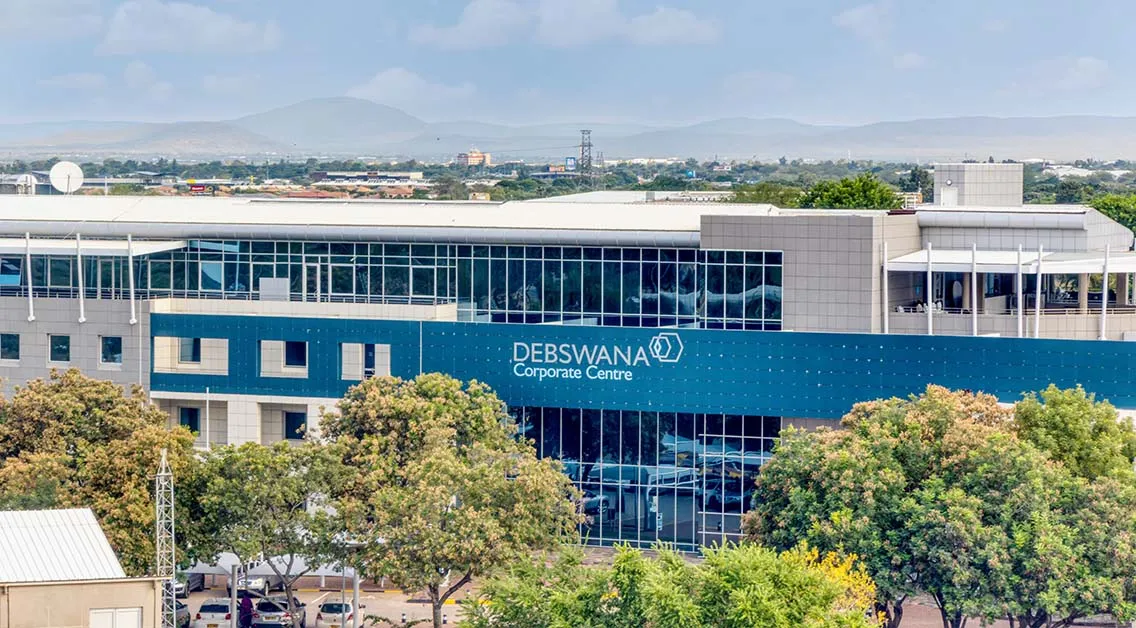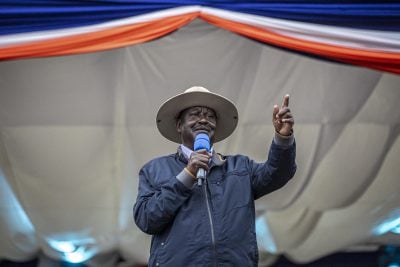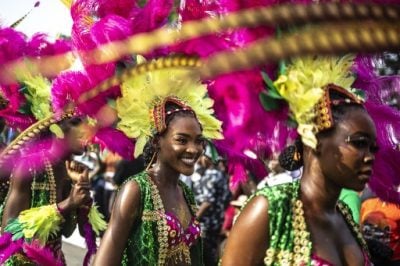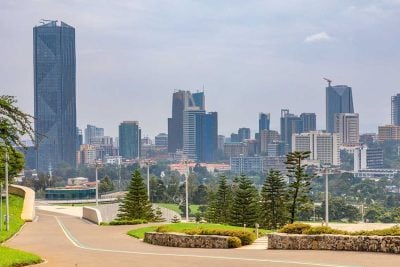This article was produced with the support of Debswana Diamond Company
How has Debswana contributed to the economic development of Botswana over the years?
Debswana Diamond Company was established in 1969 and it is owned in equal shares by the government of the Republic of Botswana and De Beers Group. Debswana is a major contributor to the national economy of Botswana, contributing significantly to the gross domestic product, foreign exchange earnings and government revenues. Debswana is also the largest contributor to the De Beers Group’s rough diamond production. The company is committed to mining safely, optimally and responsibly, as well as making a meaningful contribution to the development of communities around its mines and the nation at large, thus making life brilliant. For further information visit
Debswana has been instrumental in Botswana’s economic growth since its inception in 1969. Through its diamond mining operations, the company has been a major contributor to the national GDP, government revenues, and foreign exchange earnings. A large share of Debswana’s profits goes to the Botswana government, supporting public services and infrastructure such as building of hospitals, roads and schools.
Job Creation Priorities: Debswana has long prioritised job creation as part of its strategy for national development. Initiatives like the Citizen Economic Empowerment Programme (CEEP) have provided opportunities for local suppliers, entrepreneurs, and contractors. Through CEEP and related efforts, Debswana creates direct employment for thousands of Batswana and indirectly supports more jobs through supply chain development and services. While exact numbers vary, Debswana directly employs over 6,000 employees and 5,000 contractors and impacts many more indirectly through its value chain. Debswana has created over 20,000 jobs in the last five years through the CEEP and the CSI programmes.
Education: Debswana funds and supports schools in mining communities. Through Debswana’s Government School Development Programme (DGSDP), an initiative that offers in-service training and development, Debswana trains government schoolteachers in core subjects such as Mathematics, Science, English and Agriculture in order for them to empower students in government schools around our areas of operations.
Debswana has pioneered Botswana’s Human Development. Over 1160 citizens have been trained since the 1970s, in top universities across the world. In addition, over 1,600 top-quality artisans & technicians have been trained since 1971 at Orapa Training Centre, for Debswana and mining industry.
Debswana also contributed to the establishment of Botswana Accountancy College, one of the leading business tertiary institutions in Botswana. The college was the brainchild of Debswana in the 1980s, when the company started training accounting students locally though Debswana Accountancy Training Centre rather than in overseas institutions. The Government welcomed the idea which culminated in the merger between Debswana Accountancy Training Centre and the government’s Botswana Centre for Accounting Studies.
Healthcare: The company has built clinics and hospitals to improve local health services, including the Orapa Mine Hospital. Debswana Diamond Company spends over P160m each year on healthcare running the two district referral hospitals at Jwaneng and Orapa mines. 80 percent of the people who utilise services from Debswana operated hospitals are members of the public, while only 20 percent are employees. The two hospitals, Orapa and Jwaneng serve an average in excess of 200,000 patients per annum.
Debswana is also proud to have contributed to the development of health care facilities in Botswana such as the expansion of the Letlhakane Maternity wing. The company also completed construction of a fully-fledged Maboane Clinic at a cost of P11m. These interventions, according to Kamona, have assisted in improving access to primary health care by Batswana in alignment with Vision 2036 ambition of Achieving Prosperity for All.
Beyond health facilities, Debswana has over the years also contributed significantly towards health needs of Botswana through comprehensive health programmes including provision of ambulance service for reported emergencies within a 100km radius, for chronic disease management, wound dressings and more. Debswana has also been instrumental in HIV and TB outreach management.
Environmental Programmes: Debswana takes an active interest in conservation and has created two viable game parks in the mining lease areas around its two principal mines, Jwaneng and Orapa covering a total of 65,000 hectares. These parks provide a vital sanctuary for wildlife in areas where wildlife has otherwise been forced out through encroachment, cattle-farming and poaching.
Please elaborate on the theme “more than diamond mining”…
This theme underscores Debswana’s commitment to creating value beyond the extraction of diamonds. It reflects the company’s broader focus on sustainable development, job creation, innovation, community engagement, and environmental stewardship.
By emphasising “More Than Diamond Mining,” Debswana seeks to highlight its contributions to Botswana’s socio-economic development, environmental preservation, and commitment to community upliftment.
Why has Debswana prioritised job creation in its strategy, and how many jobs has the company created for Botswana through initiatives like CEEP, both directly and indirectly?
Debswana has created 20,000 jobs through the Citizen Economic Empowerment Programme (CEEP) over the last five years.
Debswana has prioritised job creation due to the current national unemployment rate, especially amongst the youth.
What are the key social initiatives and development projects implemented within all key communities that you serve – Jwaneng, Orapa, Damtshaa
and Gaborone?
Debswana has funded numerous education, health, and infrastructure projects. Debswana has spent over P100m in the last five years to deliver a lasting positive contribution to communities.
Key programmes supported in Jwaneng include: the Diamond Dreams Academic Awards (DDAA) at P700,000; Arts and Crafts Centre at P2m; Tsonyane-Development of Oki Cultural Heritage Site (Lokitso Community) at P1.5m; STEM Programme–GirlEng at P800,000; STEM Programme–Techno Girls at P1.5m; Capacity Building for businesses owned by women and people with disabilities (PWDs); Primary and Junior Schools Wellness Programmes at P1.5m; Capacity-building for women and PWDs owned businesses P500,000; Primary and Junior Schools Wellness Programmes at P800,000; Community Wellness Programmes-GBV Campaign at P1.5m; and the Bee Project at 300,000.
Projects in Orapa, Letlhakane and Damtshaa Mines (OLDM) include: the Tsienyane Disability Block (Rakops) at P600,000; Psycho-social support programme at P841,451.76; Government Schools Development Programme at P700,000; Capacity-building for Boteti Development Committees at P550,000; Mokopi Conservation at P1.5m; Poultry project for PWD at P400,000; Xhumo Horticultural Production at P1.5m; Khwee Ranch Development at P1m; Letlhakane Cluster Project at P1.5m; Diamond Dreams Academic Awards at P500,000; Employee Volunteerism at P250,000; Covid-19 Support to Boteti DHMT at P500,000; Letlhakane Maternity Wing Ironmongery Supply at P82,210; Capacity building for communities and CSI call for applications at P414,174.50; Commemoration for PWD’s at P100,000; LED Training for Boteti Councillors at P100,000; Mmadikola Market at P250,000; and Xhumo jam production equipment at P150,000.
Other initiatives include: a Flash Mentoring programme bringing 75 female students together with female engineers at sites; and GirlEng workshops for 400 girl students per year; and the Maranyane Bokamoso STEM programme and job shadowing for 33 female students.
Debswana has suppled Smartboards for five schools in Jwaneng, benefitting 601 students; Digital equipment for 25 schools in Boteti; Tsienyane disability classroom block (39 students); Solar geysers for Camphill & SOS (462 beneficiaries); and the Pudulogong equipment upgrade (70 beneficiaries). wThe Ramotswa Centre for Deaf facility upgrade had 91 beneficiaries; and the Rehabilitation Centre for PWDs in Gaborone 1,000 beneficiaries.

 Sign in with Google
Sign in with Google 



